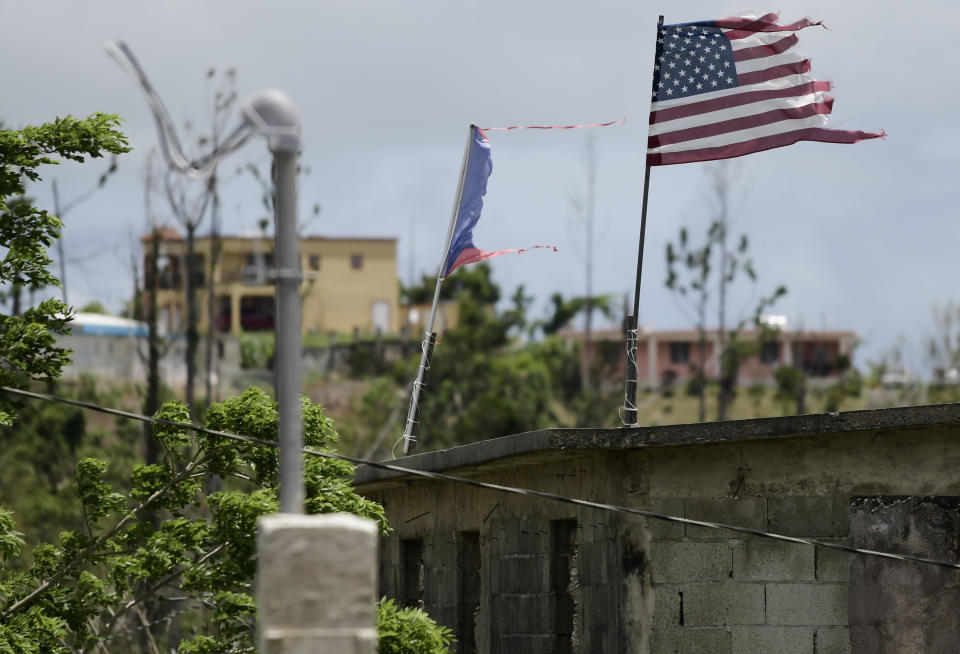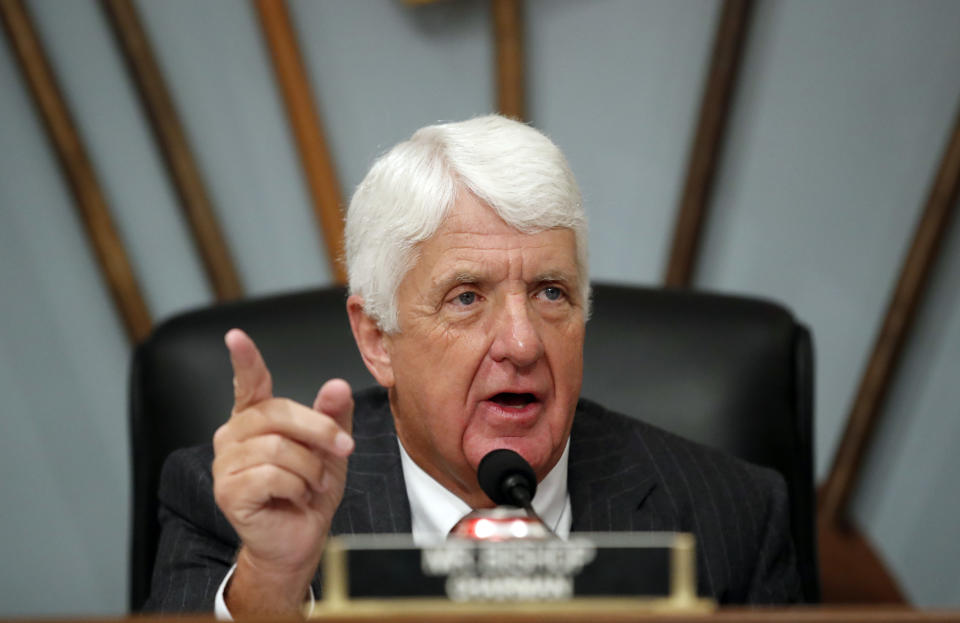Study on hurricane casualties fuels talk of statehood for Puerto Rico
A new study that concluded the number of deaths in Puerto Rico from Hurricane Maria have been vastly underestimated is fueling the debate over the territory’s possible future statehood.
A study by a Harvard researcher released Tuesday estimated that 4,645 people died last year as a direct or indirect result of Hurricane Maria. That total is 73 times the official government count of 64 and is in line with reports from the island, including interviews with funeral home directors who said last fall that the government numbers were too low. The figure contrasts with President Trump’s comments in the aftermath of the damage in which he said the storm wasn’t a “real catastrophe.”
Critics of the federal response to Maria, comparing it to the relief efforts in Texas after Hurricane Harvey, believe it would have been more effective if the U.S. territory were a state with representation in Washington. (The island sends one nonvoting representative to Congress.) To promote statehood, Puerto Rico Gov. Ricardo Rosselló dispatched a “shadow delegation” of five representatives and two senators to Washington in January.
“What we want to impress upon Congress and, quite frankly, the whole nation is that Puerto Ricans want a change from their second-class status that Puerto Ricans have experienced and has been exposed in the path of Hurricane Maria,” said Rosselló in a January interview with the New York Times.

Sending an uninvited delegation to Congress to enforce a demand for statehood is known as the Tennessee Plan, after the tactics used by Tennessee in 1796 to earn its way into the union when the inhabitants believed Congress was not acting quickly enough. Other states, including most recently Alaska, have followed suit. Alfonso Aguilar, a former George W. Bush administration official who favors statehood, is one of the appointed shadow representatives and says he’s seen an increase in interest since Hurricane Maria.
“Puerto Ricans were trending toward a support of statehood,” said Aguilar in an interview with Yahoo News, “and I’m seeing anecdotally that Maria has accelerated that process.”
A January poll from Rasmussen found that 47 percent of Americans supported statehood (to 34 who didn’t and 19 who weren’t sure), up from 40 percent last March. Aguilar thinks this reflects a growing realization that Puerto Ricans are already U.S. citizens, something that nearly half of Americans didn’t know before the storm. The island has been a U.S. territory since the Spanish-American War in 1898 and has had local self-governance since 1952.
There’s also support from powerful Republicans. Rep. Rob Bishop, R-Utah, is chairman of the House Committee on Natural Resources, which gives him oversight over U.S. territories such as Puerto Rico. Earlier this month, Bishop came out in support of statehood without preconditions.

“They should be on a track to statehood,” said Bishop in an NPR interview earlier this month. “They are Americans. They have a history of patriotism. They are a clear part of the country. And people have to realize how much Puerto Rico has been a part of the United States.”
It’s unlikely Republican leadership would let the statehood initiative get very far, as conventional wisdom is that Puerto Rico’s delegation would lean heavily Democratic. (Aguilar, a Republican, disagrees with this notion, saying it would be a swing state at worst.) When Alaska and Hawaii were added as states it came as a package deal in an attempt to balance out their votes, and there is no clear conservative pairing for Puerto Rico with Democratic Washington, D.C., the other main candidate for statehood.
But there are other signs that support for statehood may be growing — at least among Puerto Ricans now living in Florida — as Sen. Bill Nelson and Gov. Rick Scott, competing for Nelson’s Senate seat this November, have both come out in favor of statehood. Thousands of Puerto Ricans have migrated to Florida in the aftermath of Hurricane Maria, joining the million already located there. Since Puerto Ricans are U.S. citizens, they’re eligible to register to vote in the Sunshine State.

It’s tougher to tell on the island, with no recent polling as the recovery from Maria continues. A 2017 nonbinding referendum supporting statehood passed with 97 percent support, but that was with turnout of only 23 percent, with anti-statehood groups boycotting the vote. Roselló, who supports statehood, won the 2016 gubernatorial election but by only 3 points over an anti-statehood candidate. One poll of Puerto Ricans prior to Hurricane Maria found that 65 percent supported statehood.
Aguilar said the push will now be on a national campaign that puts pressure on legislators, noting that “Congress isn’t going to grant Puerto Rico statehood out of the kindness of their hearts.” He added his belief that statehood would help the Puerto Rican economy, struggling with a decadelong recession, and help alleviate billions in debt.
The next step for statehood in Congress would likely come via Bishop’s Committee on Natural Resources, which has the power to hold a hearing on legislation codifying statehood. In the meantime, Rosselló and the shadow delegation will continue pushing for support in Washington while attempting to solidify support back home. It’s been a long road for supporters of Puerto Rican statehood, but with the renewed focus on the island following the tragedy of Hurricane Maria they appear to be making progress.

Read more from Yahoo News:


